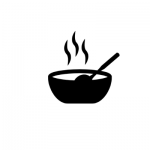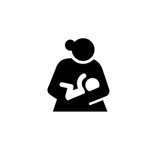
Calling a Doctor Only During Emergency Deliveries: ANM in Bihar
7 June 2020
The ‘Inside Districts’ series launched in April was a one-of-its-kind attempt to capture the experiences of district and Block-level officials, panchayat functionaries and frontline workers, on their challenges and best practices. As the fourth phase of a country-wide lockdown ends, we went back to some interviewees to understand how their situation has changed. Among them is an Auxiliary Nurse Midwife (ANM) in Supaul, Bihar.
The interview was originally conducted in Hindi on 12 May 2020, and has been translated.
Q: You mentioned not being provided transport earlier. Have you received it now? What about gloves, hand sanitisers?
ANM: No transport facility has been provided by the department. We received masks, gloves and sanitisers on 25th of March.
Q: What is the support you need to do your job better now?
ANM: I work in a referral hospital, where a doctor should have also been available. My tasks are not related to COVID-19 but on labour and deliveries. However, we call the doctor only in case of an emergency; otherwise, I along with the two other sisters do the delivery of pregnant women. We do not get any encouragement.
Q: Do you see any changes that have taken place in the last two months?
ANM: There are a lot of changes. People have started following social distancing norms. They take care of cleanliness, and are also using masks.
The people in my area are not letting us vaccinate their kids if the colour of the vaccine is red. They think that a red vaccine will kill their child, and that green vaccine is better. It is important to give BCG vaccination to kids. We have to convince their mothers a lot to allow us to give the vaccination. [Note: Accountability Initiative has not independently verified the medical basis for colored vaccines or bottles]
Auxiliary Nurse Midwife is a village-level female health worker working in the village Health Sub-centre, and is the first contact person between the community and the health services. ANMs are expected to be multi-purpose health workers playing a critical role in maternal and child health including immunisations, family planning services, and treatment of minor injuries and first aid in emergencies and disasters. As per the Rural Health Statistics 2019, there are a total of 2,34,220 ANMs across Sub-centres and Public Health Centres in the country.





